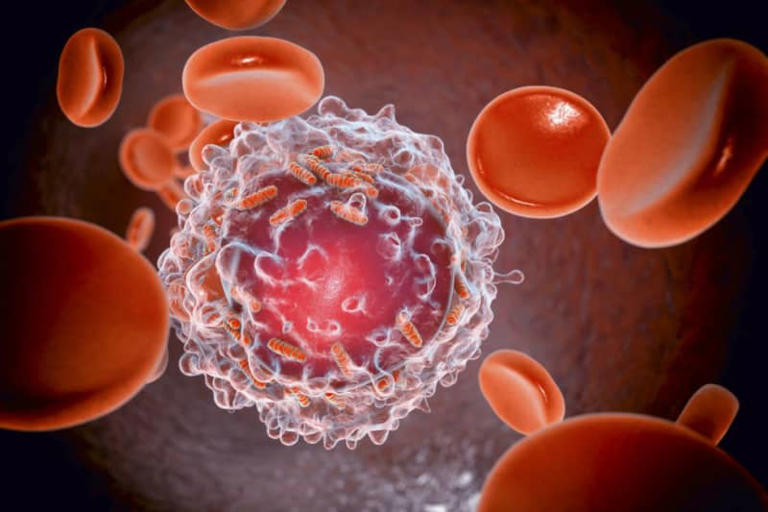“Norovirus Outbreak: 3 Shocking Reasons Behind the Alarming Surge!”
Table of Contents
ToggleNorovirus Outbreak: Understanding the Recent Surge in Cases
Norovirus outbreak: It’s a phrase that’s been circulating in the news lately, and for good reason. Recent government figures from the UK Health Security Agency (UKHSA) have revealed a concerning trend: norovirus cases are currently 75 percent higher than the five-year average for this time of year. This surge in cases has experts puzzled and the public concerned. So, what exactly is causing this spike, and what can we do about it?

© Getty Images/iStockphoto
The Rise in Cases: Why is Norovirus Spreading?
Norovirus outbreak: Typically, as the weather warms up in spring, we expect to see a decline in norovirus cases. However, this year has been different. Despite the change in seasons, reported cases have remained stubbornly high. Experts believe that a combination of factors may be contributing to this increase, with one significant factor being the unusually cold weather. Cold temperatures create favorable conditions for the survival and spread of the norovirus, leading to higher transmission rates.
Changes in Monitoring and Reporting
Norovirus outbreak: Another factor that may be playing a role in the uptick of cases is changes in the way the illness is monitored and reported. The UKHSA has acknowledged that alterations in monitoring and reporting methods could be leading to increased detection of cases. This suggests that the higher numbers may, in part, be due to improved surveillance rather than solely an actual increase in infections.
Vulnerable Populations at Risk
Norovirus outbreak: It’s important to recognize that certain groups are more susceptible to the severe effects of norovirus, including young children, older adults, and immunocompromised individuals. For these vulnerable populations, norovirus can cause dehydration and other complications, making it essential to take preventive measures seriously.
Preventive Measures: What You Can Do
Norovirus outbreak: While it may seem daunting to combat a highly infectious virus like norovirus, there are steps you can take to protect yourself and others:
Stay Hydrated: If you do become ill with norovirus, staying hydrated is crucial, especially for vulnerable groups.
Isolate Yourself: If you experience symptoms such as diarrhea and vomiting, it’s important to isolate yourself to prevent spreading the infection to others. Avoid returning to work, school, or other public places until 48 hours after your symptoms have stopped.
Practice Good Hand Hygiene: Washing your hands frequently with soap and warm water is one of the most effective ways to prevent the spread of norovirus. Be sure to wash your hands before eating, after using the bathroom, and after caring for someone who is sick.
Clean Surfaces: Use bleach-based products to clean surfaces in your home and workplace, as norovirus can survive on surfaces for extended periods.
Avoid Hospitals and Care Homes: If you are unwell with norovirus, avoid visiting hospitals and care homes to prevent spreading the infection to vulnerable individuals in these settings.

© Getty Images/iStockphoto
The Role of Public Health
Norovirus outbreak: Public health agencies play a critical role in monitoring and managing infectious disease outbreaks like norovirus. By tracking cases, providing guidance on preventive measures, and conducting outreach to vulnerable populations, these agencies work to minimize the impact of outbreaks on communities.
Looking Ahead
Norovirus outbreak: While the recent surge in norovirus cases is concerning, it’s important to remain vigilant and take proactive steps to protect ourselves and others. By staying informed, practicing good hygiene, and following public health guidelines, we can help reduce the spread of norovirus and keep our communities safe.
Conclusion
Norovirus outbreak: In conclusion, the recent increase in norovirus cases serves as a reminder of the importance of vigilance when it comes to infectious diseases. By understanding the factors contributing to the spread of norovirus and taking proactive measures to prevent transmission, we can work together to mitigate the impact of outbreaks and keep ourselves and our communities healthy.
ALSO READ:
Walking for Health: 10,000 Steps to Vitality!




